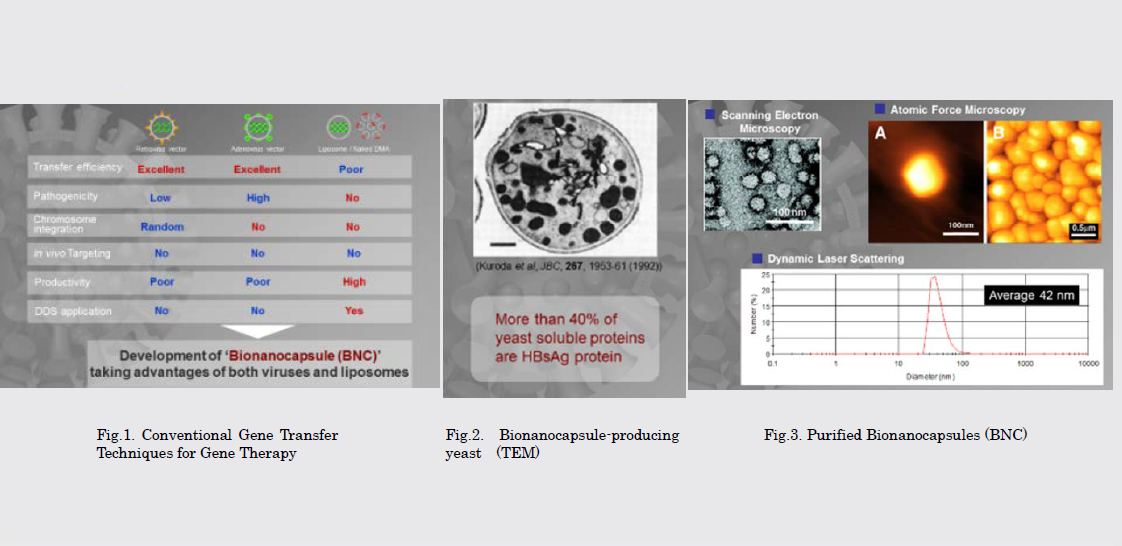
SANKEN
The University of Osaka
大阪大学
産業科学研究所

LAST UPDATE 2017/02/26
-
研究者氏名
Researcher Name立松健司 Kenji TATEMATSU
助教 Assistant Professor -
所属
Affiliation大阪大学 産業科学研究所
生体分子反応科学研究分野
SANKEN, The University of Osaka
Department of Biomolecular Reaction -
研究キーワード
Research Keywords生化学
分子生物学
創薬
ウィルス学
Biochemistry
Molecular biology
Drug discovery
Virology
- 研究テーマ
Research Subject -
バイオナノカプセルを用いた細胞および臓器特異的なドラッグデリバリーシステムの開発
Development of tissue and cell specific drug delivery system using bio-nanocapsule
研究の背景 Background of the Research
私たちが作成したバイオナノカプセル(BNC)は、B型肝炎ウイルス(HBV)のヒト肝臓細胞特異的感染に必須な表面抗原Lタンパク質を出芽酵母で発現させることにより得られる生体に無害な中空ナノ粒子です。BNC内部に遺伝子をはじめとする種々の物質を封入することが可能であり、培養細胞や担癌マウスにおいてヒト肝臓細胞特異的に高効率で物質を送達できます。
The bio-nanocapsule (BNC) developed by us is a virus-like empty nanoparticle composed of envelope L proteins derived from hepatitis B virus (HBV) and phospholipids derived from yeast. Since BNC does not contain the viral genome, it is nontoxic to the cultured cells used in in vitro experiments and is also assumed to be safe for the use in in vivo experiments. We previously developed a novel pinpoint DDS to hepatocytes using BNC incorporated with genes and drugs.
研究の目標 Research Objective
私たちは表面抗原Lタンパク質のN末端側にあるヒト肝臓特異的なPreS1部位を改変してBNCに任意の臓器特異性を持たせ、新規のドラッグデリバリーシステムを構築することを目指しています。
The envelope L protein of HBV contains an N-terminal region designated preS1, which bears the specific infectivity to human hepatocytes. Therefore, BNC is also recognized specifically by human hepatogenic cells. This specificity to hepatocytes of BNC is altered by replacing the preS1 region of L protein with other bio-recognition segments. We are developing a novel pinpoint DDS to hepatocytes using BNC incorporated with genes and drugs.
研究図Figures

論文発表 / Publications
Protein Expr. Purif. 78(2), 149-55 (2011). PLoS One. 7(5), e37136 (2012). Sci. Rep. 3, 1191 (2013). Sci Rep. 4, 4242 (2014)
研究者連絡先 / HP
- kenji44
 sanken.osaka-u.ac.jp
sanken.osaka-u.ac.jp - http://www.sanken.osaka-u.ac.jp/labs/smb/